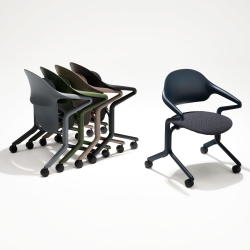October 3, 2023
CIBSE publishes revised maintenance guide
 A new fully revised edition of the Chartered Institution of Building Services Engineers (CIBSE) Guide M: Maintenance, Engineering and Management sets out the latest technological and legislative developments that will impact facilities managers, designers, building owners and operators, otherwise known as the ‘maintenance bible’. Containing all the information needed for the successful operation of a buildings’ services, while ensuring buildings are safe and optimised for energy performance, this revision has been published to provide guidance on the many areas of change since Guide M was last amended in 2014, including publication of the Building Safety Act and amendments to the Building Regulations. (more…)
A new fully revised edition of the Chartered Institution of Building Services Engineers (CIBSE) Guide M: Maintenance, Engineering and Management sets out the latest technological and legislative developments that will impact facilities managers, designers, building owners and operators, otherwise known as the ‘maintenance bible’. Containing all the information needed for the successful operation of a buildings’ services, while ensuring buildings are safe and optimised for energy performance, this revision has been published to provide guidance on the many areas of change since Guide M was last amended in 2014, including publication of the Building Safety Act and amendments to the Building Regulations. (more…)






















 Vulnerable narcissistic leaders are especially likely to make employees irritated during crisis situations, reveals new research from NEOMA Business School. Birgit Schyns, Distinguished Professor of People & Organisations at NEOMA, and co-authors analysed survey data on workers in the UK education sector during the COVID-19 pandemic. Respondents reported their levels of irritation and Coronavirus-related worry in five weekly surveys, as well as their experiences with vulnerable narcissistic leadership – an unstable form of leadership characterised by covert feelings of entitlement.
Vulnerable narcissistic leaders are especially likely to make employees irritated during crisis situations, reveals new research from NEOMA Business School. Birgit Schyns, Distinguished Professor of People & Organisations at NEOMA, and co-authors analysed survey data on workers in the UK education sector during the COVID-19 pandemic. Respondents reported their levels of irritation and Coronavirus-related worry in five weekly surveys, as well as their experiences with vulnerable narcissistic leadership – an unstable form of leadership characterised by covert feelings of entitlement. 
 Commercial Interiors UK (CIUK), the Trade Association for the UK’s Commercial Interiors Sector has appointed Sean Holt as its new Managing Director. As the new Managing Director, Sean will be responsible for leading a dedicated team to deliver the revised strategy of CIUK following its recent re branding from BCFA, improving member engagement and benefits, increasing membership and growing the CIUK events portfolio whilst working closely with its media partner Design Insider to build on its growing reputation as the premier online portal dedicated to commercial interior designers and architects.
Commercial Interiors UK (CIUK), the Trade Association for the UK’s Commercial Interiors Sector has appointed Sean Holt as its new Managing Director. As the new Managing Director, Sean will be responsible for leading a dedicated team to deliver the revised strategy of CIUK following its recent re branding from BCFA, improving member engagement and benefits, increasing membership and growing the CIUK events portfolio whilst working closely with its media partner Design Insider to build on its growing reputation as the premier online portal dedicated to commercial interior designers and architects. 










September 5, 2023
Working from home won’t last forever… will it?
by Zain Ali • Comment, Flexible working, Technology